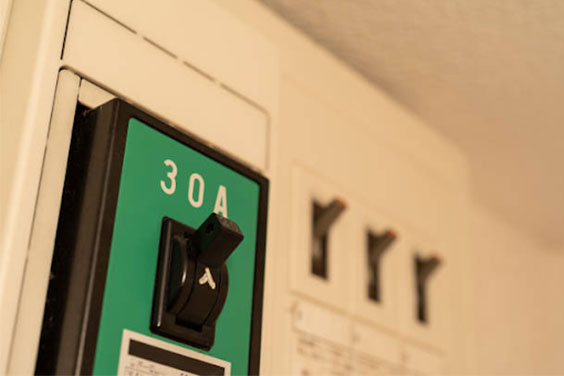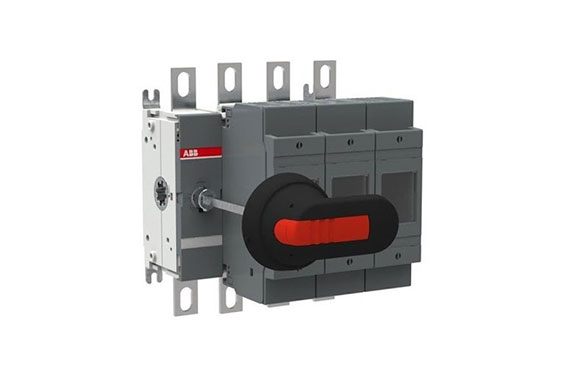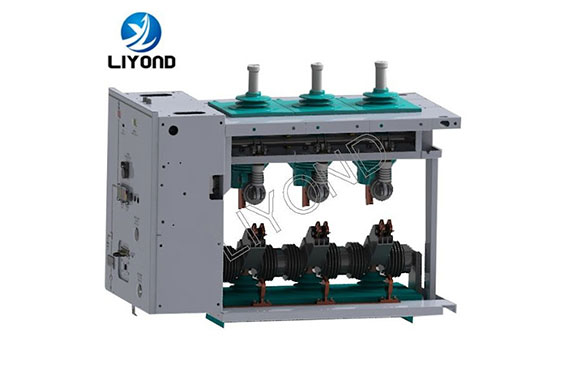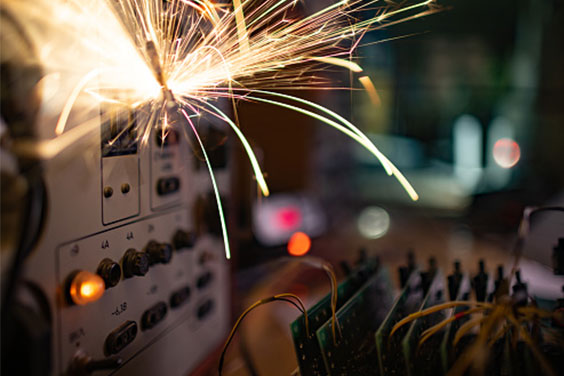The difference between circuit breaker and isolator is a critical point of understanding in electrical systems. To ensure the safe operation of electrical equipment, measures must be put in place to make sure that there is no load current or load fault that can disrupt the smooth running of electricity.
A very important set of components that helps to ensure this is switchgear components. Amongst these components, isolators and circuit breakers are commonly found in every electrical installation. The importance of isolators, as well as circuit breakers, such as mv breakers cannot be overemphasized. They are cogent components in an electrical system.
There is usually a debate of isolator vs. circuit breaker, and this is because they are closely related. Both components have a similar function of disconnecting electrical circuits when there’s a load current issue. However, some differences exist between them. It’s very paramount that the debate of the isolator and mcb (miniature circuit breaker) is settled now so that you don’t mistake their functions and abilities.
So, in the upcoming paragraphs of this post, we will be discussing the difference between isolator and circuit breaker.
What are Isolator and Disconnector
An isolator is sometimes called a disconnector. This is a switching component that operates only under off-load conditions i.e., it can only be operated when there is no current passing through the circuit. This switching device is usually used to disconnect a section of the electrical equipment from current. It is used when inspection, maintenance, or repairs are to be done; it is a grounding disconnect switch that protects the technician and switchgear from inadvertent operation.
They also prevent circuit hardware damage by reducing short circuits and overcurrent, as well as by enabling prompt maintenance. Isolators work by separating part of a circuit. An isolator restricts the DC signals and permits the AC signals to flow.
One important factor to note before operating an isolator is that it’s an off-load switch. It does not have a built-in arc suppression system, so you have to ensure that the current passing through the circuit is zero. This is for safety purposes.
What is Circuit Breaker
A circuit breaker is known as the heart of the electrical system; it serves as a safety device. Its primary role is to protect circuits from overload, faults, and short circuit failures. A circuit breaker detects such defects and interrupts the circuit’s power flow, preventing further damage. The greater the fault intensity detected, the faster the power will be interrupted.
A circuit breaker is like a fuse. It’s used to control the flow of current. It can be operated manually and automatically. It also has a built-in extinguishing system that makes it capable of interrupting high loads and faults. The arc extinguishing of a high voltage circuit breaker happens in a vacuum medium, which protects the electrical system more. A circuit breaker is very suitable for handling devices with heavy load currents, such as transformers.
For high-quality circuit breakers, Liyond Electric, a professional circuit breaker supplier is the best choice. Branded raw materials and an efficient quality system are utilized in the manufacturing process.
What are isolator and circuit breaker differences?
As you consult load break switch manufacturers for isolators and circuit breakers, it is imperative that you know the differences that exist between them. So, in the next series of this post, we will be discussing the differences between circuit breakers and isolators.

Function
An isolator’s major function is to cut out a section of the electrical system that has faults, so that it will be safe to repair. This is also done for inspection and servicing purposes. While a circuit breaker, on the other hand, is like an Automatic Circuit Breaker (ACB). If there’s a fault, it cuts off the entire system.
Construction
An isolator is a simple mechanical switch; it does not have an arc extinguishing system. While a circuit breaker is a single box that’s composed of an electromechanical switch and a relay; it has an arc extinguishing system.
Installation Way
An isolator is installed on both sides of the circuit breaker, while a circuit breaker is installed in the circuit.
Application
Another isolator and circuit breaker difference is that isolators are used in industrial applications, while circuit breakers are used both in industrial and domestic settings.
Breaking Capacity
Isolators are not used to break load faults. But circuit breakers have the capacity to break load faults.
Withstanding Capacity
An isolator is an off-load device, which makes it have a low withstanding capacity to currents. It will catch fire if it’s used at the condition of on-load. On the other hand, a circuit breaker has a high withstanding capacity as it can regulate currents, even high currents.
Type of Device
An isolator is an off-load device; it can only be operated when the current flowing is zero i.e., when the power supply is off. While a circuit breaker is an on-load device; it can operate perfectly when the power supply is on.
Operation Condition
The paramount condition for operating an isolator is that the power supply must be switched off; it shouldn’t be operated on load. While a circuit breaker is not limited by any condition; it can be operated on load.
Operation Method
Isolators cannot be operated automatically, they are only operated manually. But circuit breakers can be operated both automatically and manually.
Different Medium
Isolators make use of atmospheric air as arc quenching medium, while circuit breakers use different kinds of medium, such as atmospheric air, SF6, and vacuum.
Physical Contact
Isolators have main and moving arms, and their status can be seen since they are important for maintenance. Circuit breakers have main and arcing contacts, but their physical condition cannot be seen.
Safety
One other point that settles the electrical isolator vs. circuit breaker debate is that isolators prioritize safety for technicians and switchgear as the condition for their operation states that their power supply must be switched off before every operation. But circuit breakers are not very safe, in fact, only professional and trained technicians can operate them safely.
Thermal capability
An isolator does not need insulation or any insulation medium. Circuit breakers, on the other hand, require insulation. Air, oil, vacuum, SF6 gas are used as insulation medium for circuit breakers.
Trap Charges
Another big difference between isolators and circuit breakers is that isolators can remove trap charges, but circuit breakers are incapable of removing trap charges.
Interruption
An isolator only interrupts the power during inspection, maintenance, or repair. A circuit breaker, on the other hand, protects the circuit by interrupting power from short circuit and overload faults while they are operating.
Number of Poles
Isolators are designed to have a higher number of poles than circuit breakers. This is another isolator and circuit breaker difference that should be noted.
Maintenance
A major reason why isolators are in place is for maintenance. They are switched off and maintenance is done on them to ensure that they keep functioning properly. Maintenance is done frequently. But for circuit breakers, maintenance is not done frequently, and when maintenance is to be done, only a trained and professional technician can do it.
Circuit Symbol
An obvious difference between isolators and circuit breakers is the circuit symbol. Isolators have a horizontal line in their symbol, which indicates their isolating capability. Circuit breakers, on the other hand, don’t have a horizontal line in their symbols.
Current Flow Operation
An isolator is to be disconnected from the power supply before any operation is carried out on it. It shouldn’t be opened when current is still flowing through. Whereas, a circuit breaker can be opened when current is still flowing through; it can be used regardless of whether the utility pole’s power supply is on or off.
Earth Switch
Single or double earth switches can be included in an isolator, but in a circuit breaker, no earth switch can be included.
Cost
An isolator is less costly; with a reduced amount of money, you can buy it. A circuit breaker, on the other hand, is quite expensive; you will have to invest more in purchasing it.
Difference between MCB and RCCB
Miniature Circuit Breaker (MCB) and Residual Current Circuit Breaker (RCCB) are used for the same purpose i.e., to disconnect the flow of current in a circuit whenever a surge is detected. However, they have some differences. The main differences that exist between them are:
- The major function of an MCB is to successfully prevent any harm that could happen to the circuit in the event of a sudden current surge. While the major function of an RCCB is to prevent electrocution; it is designed with human safety in mind.
- An MCB is used in any setting, be it industrial, domestic, or commercial. While an RCCB is mostly used domestically.
- MCBs have numerous numbers of poles, ranging from single-pole, two-pole, three-pole, and four-pole. RCCBs are just like MCBs. They have the same number of poles as MCBs, but they don’t come in single-poles.
- MCBs have a lower sensitivity. While RCCBs are more sensitive, which reduces the risk of electrocution.
Conclusion
Isolators and circuit breakers are necessary components in the electrical system that ensures that load currents and load faults don’t damage electric installations. They help to regulate electrical surges. Circuit breakers and isolators perform a similar function, but they have some differences.
In this post, circuit breaker vs. isolator has been discussed. As one of the professional and experienced medium voltage switchgear manufacturers, we’ve discussed both components and highlighted their differences for easy understanding and identification. Also, we discussed and differentiated two major types of circuit breakers – Miniature Circuit Breaker (MCB) and Residual Current Circuit Breaker (RCCB).




